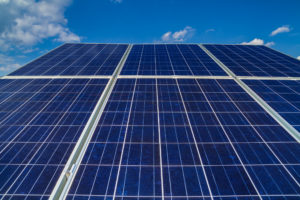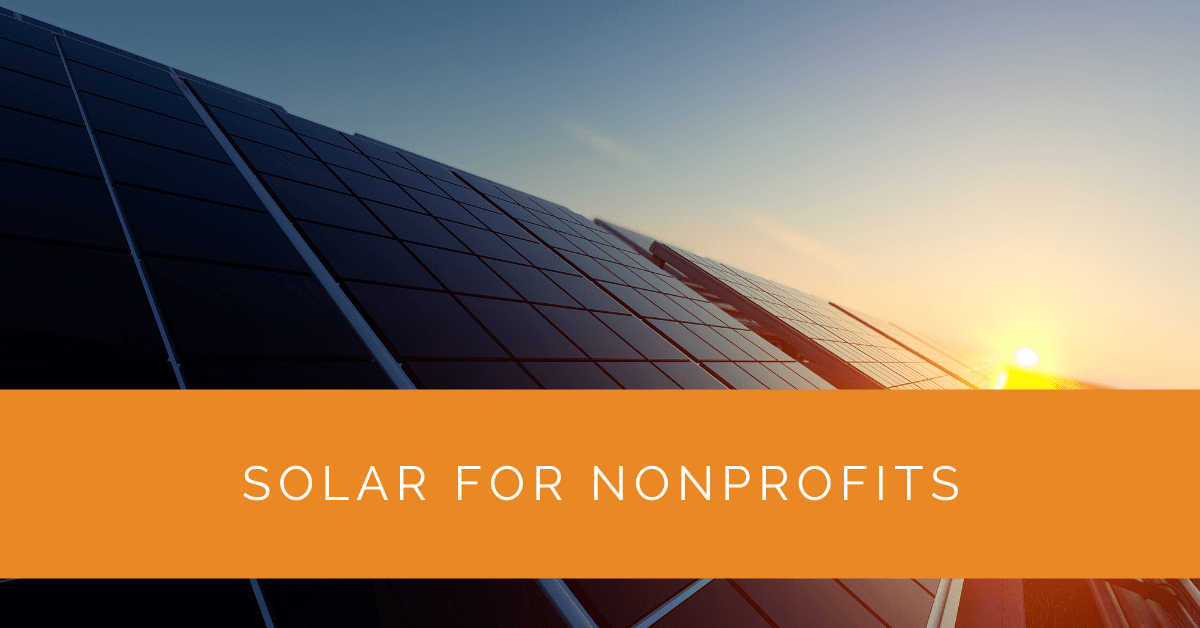Nonprofit organizations are crucial in creating positive change, and embracing solar energy can further amplify their impact. This article will explore the benefits of going solar for nonprofits, including financial incentives, grants, and the potential for long-term cost savings. By understanding the process of installing a solar energy system and utilizing available resources, nonprofits can harness the power of renewable energy while reducing their carbon footprint.
Contents
Understanding Solar Energy for Nonprofits
Solar energy is a clean and renewable resource that can be harnessed to generate electricity. By adopting solar energy, nonprofits can reduce their reliance on fossil fuels and utility grids while significantly contributing to environmental sustainability. Solar energy systems utilize photovoltaic (PV) panels to convert sunlight into electricity, powering the organization’s operations and facilities.
The advantages of solar energy for nonprofits go beyond environmental benefits. By producing electricity, nonprofits can achieve energy independence and stabilize operational costs. Solar energy offers long-term cost savings and protection against unpredictable utility expenses as utility rates continue to rise. Additionally, nonprofits can demonstrate their commitment to sustainability, attracting environmentally conscious donors, volunteers, and stakeholders who align with their mission.
Benefits of Solar for Nonprofits
Financial Incentives and Grants
Nonprofits can benefit from various financial incentives and grants to support solar projects. One notable incentive is the Investment Tax Credit (ITC), which allows nonprofits to claim a percentage of their solar system’s cost as a tax credit. This credit can significantly reduce the upfront expenses associated with solar installations. Additionally, state and local grant programs provide nonprofit funding to offset the costs of installing solar energy systems.
By leveraging these financial resources, nonprofits can make the transition to solar more affordable and accessible. These incentives lower the initial investment and shorten the payback period, making solar energy an economically viable choice for nonprofit organizations.
Long-Term Cost Savings and Financial Stability
One of the most significant benefits of going solar for nonprofits is the potential for long-term cost savings. Solar energy systems generate electricity that offsets the need to purchase power from traditional utility providers. Over time, this leads to reduced monthly electricity bills and savings that can be reinvested into the organization’s core activities. As utility rates continue to rise, nonprofits can shield themselves from escalating energy costs, enabling them to allocate more funds to their programs and initiatives.
Moreover, solar energy systems offer financial stability by providing predictable electricity costs. Nonprofits can accurately forecast their energy expenses, allowing for better budgeting and financial planning. This stability is particularly crucial for nonprofits working with limited resources, as it mitigates the risk of unforeseen spikes in utility expenses.
Environmental Sustainability and Public Image
By adopting solar energy, nonprofits can significantly reduce their carbon footprint and make a tangible impact on environmental sustainability. Solar energy systems generate electricity without producing harmful greenhouse gas emissions, thus contributing to global efforts to combat climate change.
Embracing clean, renewable energy sources enhances a nonprofit’s public image and credibility. Donors and stakeholders increasingly prioritize organizations that demonstrate a commitment to environmental responsibility. By going solar, nonprofits can showcase their dedication to sustainable practices, attracting support from environmentally conscious individuals and gaining a competitive edge in the nonprofit sector.

The Process of Going Solar for Nonprofits
Transitioning to solar energy requires careful planning and execution. Nonprofits can follow a step-by-step process to ensure a smooth and successful transition:
Assessing the Organization’s Suitability for Solar
Before initiating a solar project, nonprofits should assess their energy needs and evaluate their suitability for solar energy systems. Factors such as available roof or ground space, shading, and energy consumption patterns should be considered. Collaborating with a reputable solar installer experienced
in working with nonprofit organizations is invaluable during this assessment phase. The installer can evaluate the organization’s site, conduct a feasibility study, and provide recommendations tailored to the nonprofit’s specific requirements.
Financing and Grants for Nonprofits
Financing the upfront costs of installing a solar energy system can be challenging for nonprofits. However, various financing options are available to make the transition to solar more affordable. Power Purchase Agreements (PPAs) allow nonprofits to host a solar system owned by a third party. Through PPAs, nonprofits can benefit from solar-generated electricity without needing upfront capital investment. Instead, they pay for the electricity the system generates at a predetermined rate, often lower than traditional utility rates. This arrangement provides immediate cost savings and enables nonprofits to allocate funds towards their core mission rather than costly infrastructure.
Additionally, federal, state, and local grant programs exist to support nonprofits in their solar endeavors. These grants can offset significant installation costs, making solar energy systems more financially accessible. Nonprofits must research and explore these grant opportunities to maximize their financial resources and ensure a successful solar project.
Choosing the Right Solar Energy System
Selecting the appropriate solar energy system is a critical decision for nonprofits. Working with a reputable solar installer who specializes in nonprofit installations is key. The installer can help nonprofits determine the system size, select high-quality solar panels, and design an optimal system configuration based on the organization’s energy needs and available space. They will also assist in obtaining the necessary permits and approvals required for installation.
Nonprofits should consider system efficiency, durability, warranties, and ongoing maintenance requirements when choosing a solar energy system. Opting for reliable components and warranties ensures the longevity and performance of the system, providing peace of mind for the nonprofit.
Installation and Operation
Once the system design is finalized, the installation process can begin. Experienced solar installers will handle the installation, ensuring compliance with all applicable regulations and safety standards. The installation timeline can vary depending on the project’s complexity, but professional installers strive to minimize disruptions to the nonprofit’s operations.
After installation, nonprofits can start reaping the benefits of their solar energy system. Regular monitoring and maintenance are essential to ensure optimal system performance. Nonprofits can enter into maintenance agreements with solar installers to address any issues promptly and maintain the system’s efficiency.
Case Study: Empowering Nonprofits with Solar Energy
Background
At Solar Panels Network USA, we are committed to helping nonprofit organizations harness the power of solar energy to further their missions. This case study highlights our recent project with a local nonprofit dedicated to environmental conservation and community education.
Project Overview
The nonprofit organization had been facing rising energy costs, which strained their limited budget. They sought a sustainable solution to reduce their operational expenses and demonstrate their commitment to environmental stewardship. Our goal was to design and install a solar energy system that would meet their energy needs and align with their values.
Implementation
- Assessment and Planning: We began by conducting a thorough assessment of the organization’s energy consumption and available space for solar panel installation. This involved analyzing their monthly electricity usage and identifying optimal locations for solar panels on their property.
- System Design: Based on our assessment, we designed a 10 kW solar power system using high-efficiency photovoltaic panels. The system included an inverter and a monitoring system to track energy production and consumption. We also assisted the nonprofit in applying for state grants and federal incentives to offset the installation costs.
- Installation: The installation process was efficient, involving the mounting of solar panels on the south-facing roof of their main building. The inverter and monitoring system were installed in a secure, accessible location. Our team ensured compliance with all safety standards and minimized disruptions to the nonprofit’s operations.
Results
The installation of the solar energy system provided several benefits for the nonprofit:
- Cost Savings: The nonprofit experienced a significant reduction in their monthly electricity bills, allowing them to reallocate funds to their programs and initiatives.
- Environmental Impact: By generating clean energy, the nonprofit reduced its carbon footprint and demonstrated its commitment to sustainability.
- Energy Independence: The solar system provided a reliable source of energy, reducing their dependence on the traditional power grid and protecting them from rising utility costs.
- Enhanced Public Image: The nonprofit’s adoption of solar energy enhanced their public image, attracting environmentally conscious donors and volunteers.
Summary
Our project with the local nonprofit organization demonstrates the practical and environmental benefits of transitioning to solar energy. The use of high-efficiency solar panels and the leveraging of financial incentives provided a cost-effective and eco-friendly energy solution. At Solar Panels Network USA, we continue to deliver tailored solar solutions that meet our clients’ unique needs, promoting sustainable and efficient energy use.
Expert Insights From Our Solar Panel Installers About Solar for Nonprofits
Adopting solar energy allows nonprofits to stabilize their operational costs and reinvest the savings into their core missions. It’s a sustainable solution that aligns with the values of many organizations.
Senior Solar Installer
Solar energy systems for nonprofits not only provide financial benefits but also enhance their public image by showcasing their commitment to environmental sustainability. This can attract more donors and volunteers who are environmentally conscious.
Lead Solar Technician
Working with experienced solar installers ensures that nonprofits can navigate the complexities of financing and installation, making the transition to solar energy smooth and efficient.
Chief Solar Engineer
Experience Solar Excellence with Us!
Trust in Solar Panels Network USA, where our seasoned experts deliver top-quality solar solutions for homes and businesses nationwide. With a legacy of countless successful installations and a commitment to sustainable energy, we’re your reliable partner in the solar journey. Ready for a brighter, eco-friendly future? Call us now at (855) 427-0058 and harness the power of the sun!
Conclusion
Transitioning to solar energy offers significant advantages for nonprofit organizations. From financial savings and stability to environmental sustainability and enhanced public image, solar energy aligns perfectly with the missions and values of nonprofits. By understanding the process of going solar, nonprofits can navigate financing options, leverage available grants, and select the right solar energy system for their unique needs. Working with reputable solar installers specialized in nonprofit installations ensures a smooth and successful transition.
The time is ripe for nonprofits to embrace solar energy and become leaders in the shift toward clean, renewable power. By going solar, nonprofits can positively impact the environment, reduce operational costs, and redirect funds to their core missions. Let’s seize this opportunity to make a lasting difference and build a more sustainable future for nonprofits and their communities.
About the Author
Solar Panels Network USA stands at the forefront of solar energy solutions, driven by a team of seasoned solar engineers and energy consultants. With over decades of experience in delivering high-quality solar installations and maintenance, we are committed to promoting sustainable energy through customer-centric, tailored solutions. Our articles reflect this commitment, crafted collaboratively by experts to provide accurate, up-to-date insights into solar technology, ensuring our readers are well-informed and empowered in their solar energy decisions.

